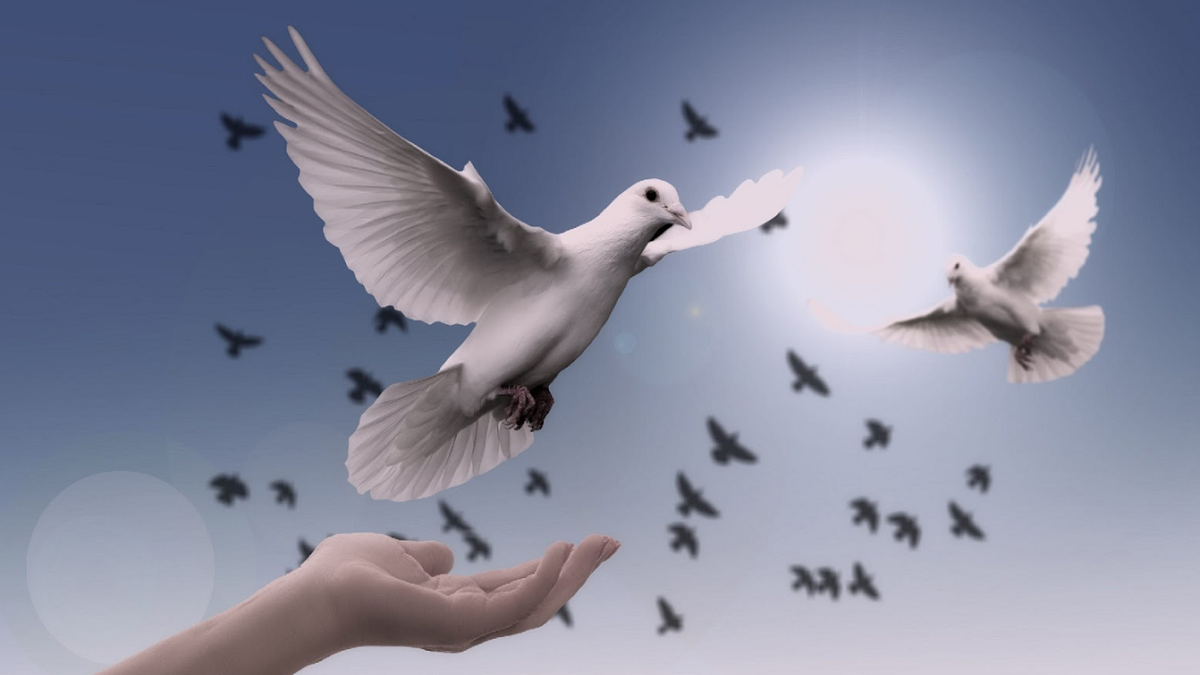The purpose of relationships is to be able to share love and happiness, but does it happen? When we ask people about the biggest cause of their stress, the answer we get across the world is relationships.
Spirituality has an interesting response: It says that everything starts inside and then extends outside. What is the conversation that goes on inside your mind? Is it a conversation of love, or is it a conversation of fear, guilt or even dislike? When we start exploring what is going inside ourselves, we realise why we are not able to experience happiness in the give and take of love.
Love brings us together, but somewhere along the line it gets polluted, and the pollution is not from outside. When I look inside myself and ask, “Do I love myself?”, the idea immediately gets challenged: “How can I love myself? It is selfish to love myself”, and so on. But I can love others only if I love myself.
Generally, we don’t even know ourselves and that is why it is difficult to love ourselves. Unless I have been on an inner journey, I can’t know myself. It is very important to know your spiritual identity and understand that it is something different from your external form.
When we look in the mirror, we identify ourselves with the face, the figure, the style — everything we see in the mirror, such as gender, colour of skin, racial characteristics. That is not the inner being, the being that I truly am, which is the powerhouse making the body function. Some call this being the soul, others call it pure consciousness. When I come to the awareness of the soul that I am, I can connect with my inner values.
Usually, to the extent that I have been able to know myself and my core values, and I have been able to spend time in silence, taking power from the Divine, I am able to love myself. One of the reasons we are not able to love ourselves is that when we connect with the inner being and see the core values we have, and we see that we are not following those values in our lives, this disconnect makes us feel uncomfortable.
If I have not been on an inner journey, I probably have not even identified what my core values are. So, my world is always the external world, where there will always be someone who is better than me and someone who is not better than me. So, I will keep fluctuating between superiority complex and inferiority complex and will never be in a stable state where I can truly love myself.
When my core values guide my life and I am aligned with them, I can truly start to love myself. It is these values that make me a human being. Also, when I identify with my core values and am able to experience detachment from my physical identity, I can connect with the Divine and receive from Him love and all the qualities I need.
If I connect with God and take from Him whatever I need, I will be able to share those qualities with other human beings. This changes the quality of my relationships, as I no longer go to people because I need something from them, but instead I am able to give them something; first and foremost, I am able to give them love. That love is unconditional: there are no expectations, therefore no disappointment, because I have received from God all I need.
Detachment is often seen as the opposite of love, but that is not the case — its opposite is attachment. Attachment brings possessiveness and causes sorrow to both, the one who tries to possess another person and the one who is the victim. Possessiveness or the need to control others arises from insecurity. But when I am aware of my true, spiritual identity and secure and stable in the knowledge of who I am, I have no need to possess or control anyone, and I can offer pure love, which acts like a magnet that attracts people and keeps them together.
Where there is attachment there is no pure love, and it causes sorrow. The situation today is that the people we are closest to are the ones who hurt us the most, or we hurt them the most. Where there is attachment or dependency in a relationship, my mind will be trapped in the other person. This may even hinder my ability to connect with God and not let me receive from Him what I need.
Detachment means appreciation and unconditional love, where I understand the other person, know what they need, and even support them, but I let them be free. It is a state where there is unselfish love, as against a relationship of dependency, which is unhealthy and holds back both persons in the relationship from their freedom.
To be detached and loving, I first have to be detached from my physical identity and aware of being a spiritual entity. When I live with this consciousness, of being a soul, master of the body, my way of thinking, seeing, and speaking will all be right. I will be loving but emotionally independent. Such unadulterated love never causes hurt or pain, so it is the greater love. Without having detachment, I cannot access pure love from God and share that love with other humans.
Pure love uplifts, heals, empowers, gives joy, and allows the other person to move forward and grow. This greater love also encompasses the whole of humanity, because when I have moved beyond my attachments and limitations, I am able to love everyone, not just those who are close to me.
B.K. Jayanti is a senior Rajyoga teacher and the director of the Brahma Kumaris’ services in Europe.







